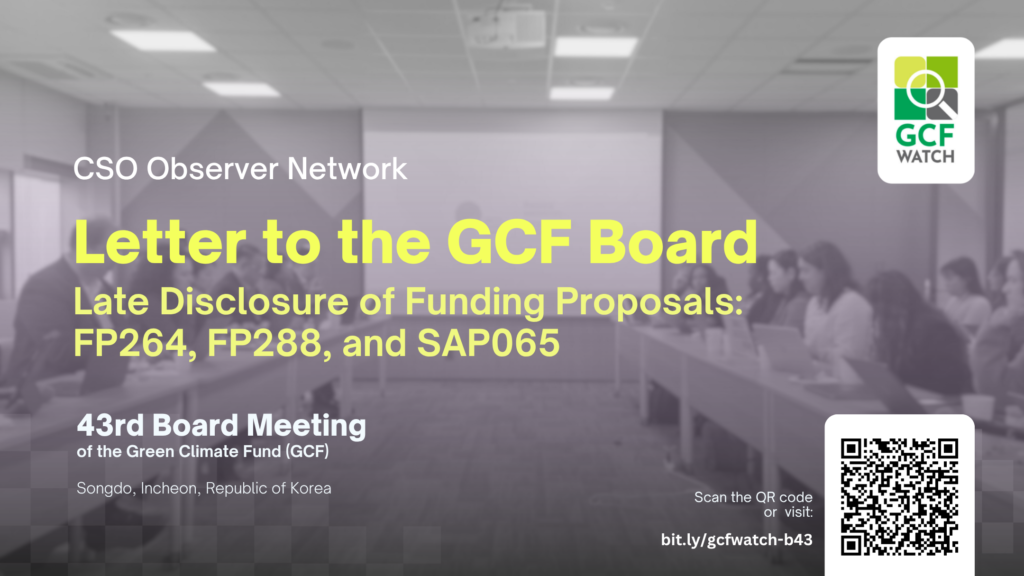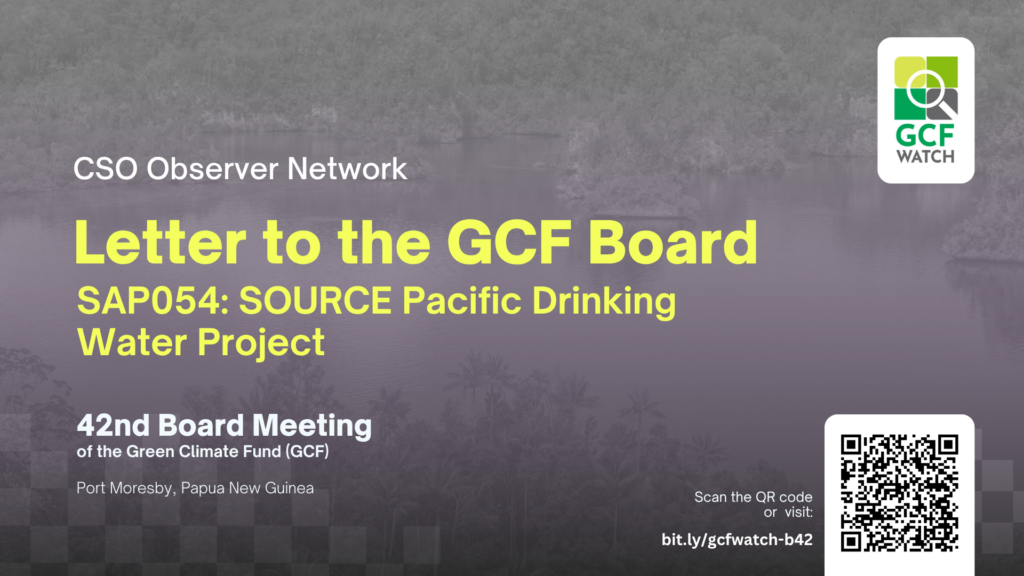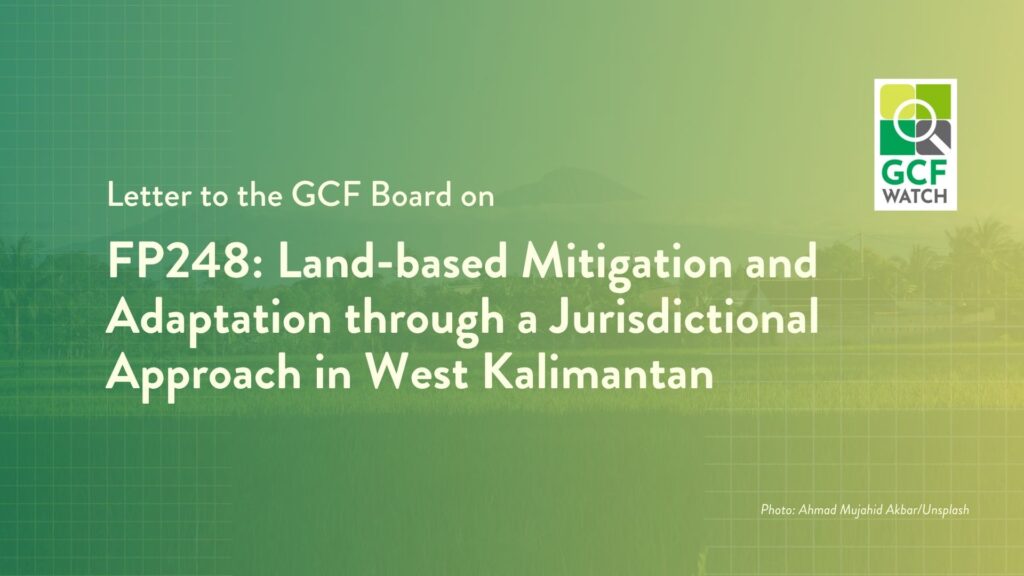Delivered by the Interim Director for Climate Policy of the Philippine-based Institute for Climate and Sustainable Cities (ICSC) Danica Marie Supnet on behalf of the observer network. Learn more about the regional dialogue: https://www.greenclimate.fund/event/green-climate-fund-regional-programming-dialogue-asia-and-pacific.
Good afternoon to all, it is a pleasure to close our week-long regional dialogue alongside The GCF’s Deputy Executive Director, Henry Gonzalez. Thank you for inviting us and we look forward to being engaged more, as usual going forward. Please allow me to introduce the GCF observer network.
We are a collaboration platform for civil society, Indigenous Peoples, and local community organizations from both developing and developed countries who actively monitor submissions to the GCF and provide interventions during and in between the GCF’s Board meetings.
The observer network advocates for the GCF to be a better climate fund, in accordance with our shared values rooted in climate justice, equity, human rights, gender equality, and mutual respect. These values are core to the GCF’s mandate and must continue to guide its operations and funding support.
Allow me to share some key points from our interventions from the most recent 36th Board Meeting of the GCF, and recommended action points as we move forward to the second replenishment:
- First, the Intergovernmental Panel on Climate Change (IPCC) recognizes that climate action that prioritizes equity, rights-based approaches, and inclusivity leads to more effective mitigation and adaptation. For the past few days, we’ve been hearing the call for collaboration. Promoting continuous collaboration and feedback should be a top priority for the Fund, and we expect that stakeholder consultations and decision-making will be included in the process of developing and advancing regional and country approaches.
- Further, it is critical that we respect the knowledge of Indigenous Peoples and communities to ensure that this is not co-opted or taken to be used for profit, but rather should be directly supported to implement effective and locally-led climate action.
- We also welcome the approval of the Updated Strategic Plan and its focus on improving accessibility. We hope this will not only lead to more direct access entities and approved projects, but also a greater percentage of the funding going to direct access projects. We are looking forward to the adoption of GCF’s own environmental and social safeguards as we move towards the implementation phase.
- Now that we are only a few months away from the GCF-2 pledging conference, we would like to reiterate our call and urge developed country Parties to take the lead in filling in the pot of the Fund, as part of the fulfillment of their obligations to developing countries. The amount the GCF has mobilized since 2014 is nowhere near the actual needs of developing countries, and the years of delay in the fulfillment of inadequate pledges have resulted in lesser approved GCF projects, impeding progress towards the achievement of our climate goals. This matter has been a constant challenge not only for the affected communities in developing countries, but also by the Fund’s delivery partners that painstakingly undergo tedious GCF processes in order to implement climate projects. The GCF has a mandate to directly support the implementation of country-driven climate action, and it should not be held back by a lack of available funding.
- We would like to reiterate our call for developed countries to contribute their fair share to the GCF replenishment, especially those countries that have not contributed, partially contributed, or have not fulfilled their pledges in the past, and deliver 100% of their commitments in the form of grants. While voluntary contributions from other Parties are welcome, we urge developed country Parties to be the primary contributors for GCF-2, in line with the Paris Agreement and their obligations under the UNFCCC and international law.
We anticipate that the next regional discussions will further advance the need to bridge the gap between local communities, the GCF, and its implementation partners. Through this, the GCF can lead to a robust climate finance delivery system that prioritizes equity, human rights, gender equality, and locally-led climate action.
The CSO observer network will continue to engage with and be critical of the GCF to ensure that its initiatives are fit-for-purpose, locally-driven, and deliver optimal solutions for the people and communities.
###








